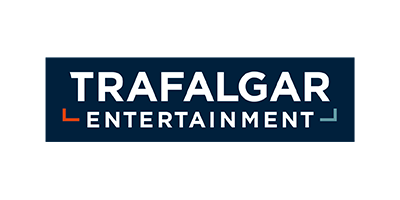Entry Requirements
No formal entry requirements
Qualifications
Level 3 Events Assistant
Duration
This apprenticeship will typically last 24 months.
The event assistant will develop their skills within event planning and progress to the level of independence required to carry out their own project, for their end point assessment. This will consist of delivering a project from initiation through to evaluation. They will then write between 2500-5000 words and deliver a presentation on their assessment day.
Alongside this, they engage with online sessions to further support their development – and work with their assigned tutor to build a portfolio of work-based evidence, and prepare for their end point project and professional discussion.
Entry Requirements
Knowledge, Skills and Behaviours
Operational
- How an event moves through its life-cycle from research and planning to delivery and evaluation.
- The respective roles of different functions: logistics, production, creative and design in event management; what each area is responsible for and how they contribute to the successful delivery of an event.
- How different venues may be suited a particular event based on clients’ needs.
- How event logistics can impact on the smooth running of an event.
- Each aspect of event logistics: the venue, delegate management, transportation, accommodation, catering.
- How the event suppliers combine to contribute to deliver an event.
- What the on-site team at an event are responsible for and how they work to ensure that the client’s and all the delegates needs are met.
- Regulation and policies that are relevant to your job role.
Professional
- Why clients’ choose to hold events, what purpose they serve, and how they would evaluate different types of events.
- What clients typically expect from a department or company who is organising the event, and the importance of meeting or exceeding clients’ expectations.
- The importance of client feedback – dealing with it and using it to improve.
- Importance of time-keeping, attendance, personal presentation and conduct and how this reflects on the company or department that is responsible for organising events for clients.
- The importance of being flexible to the needs of urgent requirements for an event.
Production Processes, Performance & Maintenance
- Develop an understanding of the business, its competitors, and how success is measured.
- How the role of the Event Assistant contributes to business success.
- Understand how an event budget is constructed and managed.
Operational
- Gather facts and collate information in response to a brief or request, like searching for the right location and venue for an event.
- Respond to requests from the different functional teams and carry out a variety of daily and weekly tasks to assist in the planning and preparation of an event.
- Provide assistance on-site at an event by registering delegates or by helping to assist the on-site team with a variety of tasks.
- Manage your time effectively by understanding how to prioritise tasks according to their importance and urgency for the stakeholders of an event.
- Use software packages to create word processing and spreadsheet documents.
- Contribute to reports, event project plans and written presentations for clients.
- Use a range of event technology platforms and in-house bespoke software systems and databases.
- Show careful attention to regulations and internal policies.
Professional
- Listen, interpret, understand, vocalise and respond to clients’ needs.
- Speak and write clearly in order to prepare written communications or provide instructions that are needed for a client, supplier or team member.
- Build rapport and trust with the stakeholders of an event so that stakeholders can collaborate well throughout the planning and organisation processes.
- Question effectively to ensure understanding of what is required from clients or colleagues.
- Have the skills to maintain relationships with colleagues, suppliers or clients once they are built, and be able to repair them when they are damaged.
- Work effectively within a group environment to prepare for, deliver and/or follow up after an event takes place.
Production Processes, Performance & Maintenance
- Assist in the preparation, management and reconciliation of event budgets by collecting information, checking data and making calculations.
- Show how commercial awareness has been applied through task and time management, specifically using efficient and effective measures to conclude a project in the most proficient way.
- Have an enthusiastic and positive approach to providing swift and accurate service.
- Show tact and discretion with sensitive information.
- Contribute to conversations with team members and share ideas with confidence.
- Remain calm and positive under pressure.
- Take pride in producing accurate work with a consistently strong attention to detail, seeking clarity where necessary.
- Use initiative when faced with problems or challenges, and be flexible to the needs of the project.
- Demonstrate consideration and respect for team members regardless of sex, race, religion and other differences.
- Frequently seek and act upon feedback, reflect on performance and show
commitment to self development. - Demonstrate personal commitment to sustainability by minimising the negative effect on the environment caused by work activities.
Where do you see yourself?


Events Assistant is a wide and varied role, assisting the Event Manager in all areas of planning and implementing an event.
An Event Coordinator plans and coordinates events, including booking vendors and inviting attendees, organising catering and other key elements.
A Fundraising Assistant helps to source and process investment or donations for an event, works with the Fundraising and Finance teams to ensure figures are correct, and maintain a customer database for present and future fundraising activities.
An Event Manager oversees the planning, development and implementation of an event. They manage team leaders, strategise and ensure that the event runs smoothly.
This role directly supports the Events Manager in logistics and administration, and includes taking minutes of meetings, keeping records of bookings and payments and feeding into creative decisions.
An Events Promotions Assistant focuses in on promoting the event, working with the Marketing team to build new audiences, target existing audiences and work on messaging to build up attendee numbers.





